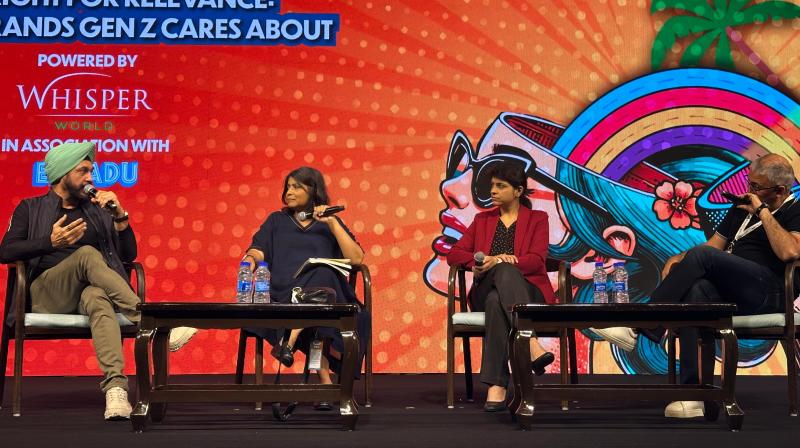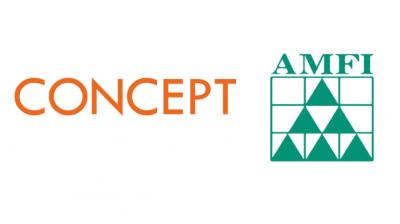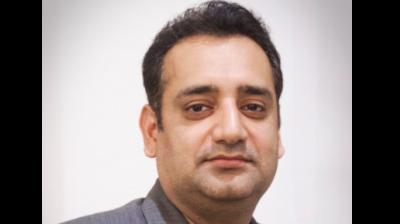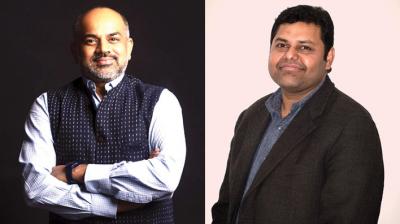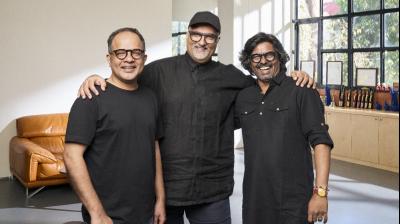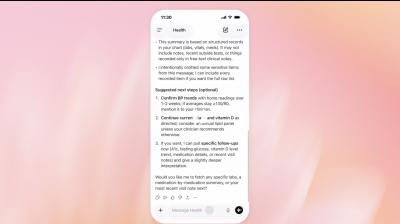On the first day of Goafest 2025, a session titled ‘Swipe right for relevance: Building brands Gen Z cares about’ brought together industry leaders to decode what sets the cohort apart and how brands can truly connect with them.
The session, moderated by independent journalist Anuradha Sen Gupta, featured Amarjit Singh Batra, managing director, Spotify India; Geetika Mehta, managing director, Nivea India; and Vikram Mehra, managing director, Saregama India. They shared how Gen Z has diminished the credibility of traditional celebrities as brand ambassadors, how they value authenticity and are loyal to brands that meet their values and needs.
The discussion opened with Batra emphasising the significance of the Gen Z audience for platforms like Spotify. “Gen Z not only in India but across the world is a big segment for us,” he shared. “In India, more than 50% of our user base comes from them. This group powers the music and creator economy. They are not just listeners - they are creators, influencers, and early adopters. For us, it’s a profound connection.”
Reinventing legacy for relevance
Representing a legacy brand, Mehta acknowledged both the strengths and the challenges of Nivea’s heritage. “Our marquee brand, Nivea, is an OG. We even did a campaign around the ‘OG Blue’ to acknowledge that legacy,” she said. “But being a legacy brand means Gen Z may see us as their mom’s brand. So we’re constantly working to renovate ourselves to stay relevant to them.”
Mehta continued, “Post-covid, skincare trends like glass skin and Korean beauty have surged. Are we keeping up with those trends? Because Gen Z is our core future consumer. They’re not distracted they’re discerning. If we offer content that’s entertaining, useful, or of value, they’ll spend hours engaging. If not, we’ve got six seconds before they scroll past.”
Generation online-first
For Mehra, the shift is personal and perceptual. “When we were growing up, screen time was a reward. For Gen Z, life begins online. It’s an online-first generation,” he noted. “It’s hard for older generations to understand this, but for them, it’s normal.”
Mehra also questioned the age gap on such panels. “We’re discussing Gen Z, but all of us here are over 40. Shouldn’t we have young people telling us what matters to them?” he asked. “At Saregama, 80% of our revenue from music, short-form content, and live events comes from Gen Z. So, understanding them isn’t a nice-to-have it’s a survival necessity.”
The core characteristics of Gen Z
Each panellist offered insights into Gen Z’s core traits.
According to Batra, the cohort is well aware about their brand preferences. He shared, "They look at brands deeply, seeking authenticity and a higher purpose. Mental health, work-life balance, gig economy they care about all of it. They’re highly receptive to change and the first to try a new brand. If you win them, they’ll become super fans but you have to earn their loyalty.”
Batra also added that as employees too, they want engagement, learning, interaction with leadership, and wellness.
"This is a generation that wants to start businesses, become creators, and challenge norms. They won’t use the same brand their parents used unless it aligns with their values," Batra detailed.
Mehra elaborated on brand expectations: “For Gen Z, relatability and purpose outweigh aspiration. They’re also far more responsive to influencers than celebrities. Traditional advertising still hasn’t caught up. When we research Gen Z preferences, it’s clear that celebrities don’t cut it anymore.”
Mehra recalled, “When global events like the war happened, many celebrities were silent. That silence upset Gen Z. It didn’t bother our generation, but it did them. They notice who speaks up and who doesn’t and it affects brand perception.”
Talking it out: Deep conversations matter
Mehta shared an anecdote from their new content platform FilterCopy which targets the 16–25 demographic. “We launched a show that highlights the generational gap - how Millennials struggle with Gen Z and vice versa. Gen Z doesn’t even acknowledge Gen X,” he quipped. “They don’t want a glossy, perfect world. They want to discuss everything sexuality, politics, and the environment. They believe in talking things out.”
He stressed that this engagement isn’t superficial.
“It’s deep. Our generation dismisses it, but for Gen Z, discussing issues is their way of processing and problem-solving," Mehta said.
Batra chimed in with a reflection on changing music tastes. He shared, “Earlier, it was all about composition. Now, if you check the top charts on Spotify, it’s lyrically rich content that’s dominating. Gen Z relates to meaning. Nonsensical lyrics from the ’90s and 2000s just don’t work anymore.”
The demand for substance and accountability
Batra noted Gen Z’s expectations from brands.
He expressed, “They want substance. They’re ready to challenge norms, and they value brands that stand for something deeper. Innovation and progress come from asking questions and Gen Z is doing that every day.”
Batra emphasised that marketing can’t be superficial. He shared, “You can’t just create a campaign with Gen Z aesthetics and think they’ll buy it. They’ll fact-check your brand. If you claim one thing but act another way, they’ll call you out. You need to live your brand values inside-out.”
Batra closed on a hopeful note: “That’s the beauty of Gen Z, they’ll hold us accountable and that’s how we will build better brands, businesses, and maybe even a better world.”

.jpg)
